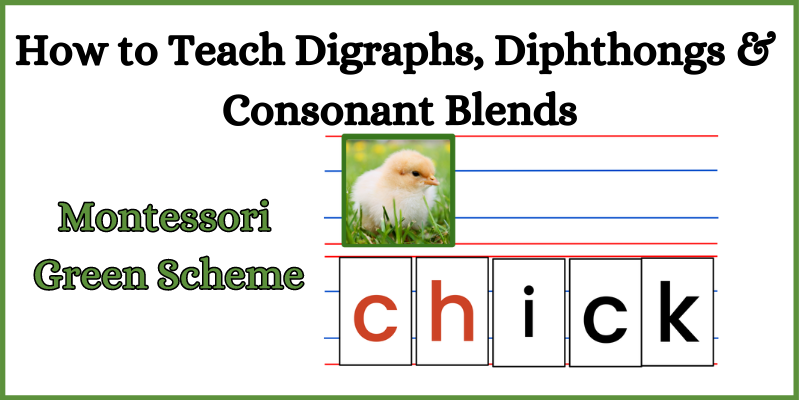Table of Contents
A digraph is a combination of two consonants that make a single sound. The most common digraphs are, sh, ch, the, pg, ng, and wh. A diphthong is a combination of two vowels that make a single sound. E.g., oo, oi au, ui. Consonant blends are two or three consonants that are pronounced in their own phonetic sound. When consonant blends are pronounced, each sound is blurred for smooth speech. Some consonant blends are cl, cr, br, fr, st.
In the Montessori method, consonant blends fall into the Blue Scheme. Blue Scheme is for Long Phonetic Words. Digraphs and Diphthongs fall into the Green Scheme.
Consonant Blends
Composing Consonant Blends
Materials: Large Movable Alphabet, Language Mat & Picture Cards
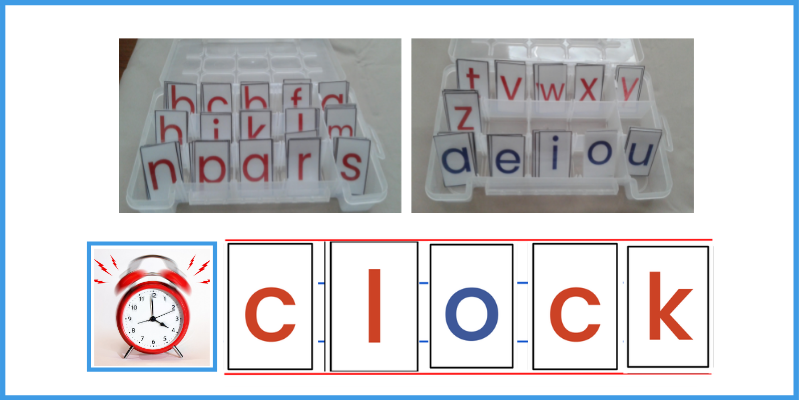
Shop for Montessori Reading Resources
Introducing and composing consonant blends are the same as CVC Words or any phonetic word. The real Montessori Large Movable Alphabet is made of wooden letter cutouts in a wooden box with separate compartments for each letter. If you don’t have a real Movable Alphabet, you can easily DIY with printables. The above Printable Large Movable Alphabet comes with 4 types of Language mats as well. The picture cards are long phonetic words. Most of the long phonetic Words are consonant blends. The above picture cards are perfect for this activity.
This is a Montessori Shelf Activity. Print and Laminate these Movable Alphabet Letters and Picture Cards. Keep each set of letters separately (a bead organizer is perfect for this). You can do tons of activities with them, and the child can use them over and over again for a very long time, so it’s worth going through that trouble to laminate and cut.
- Show the child a consonant blend/long phonetic picture card. Pronounce clearly to bring attention to all the sounds of the word.
- Invite the child to pronounce the word a few times as well.
- Show the child how to find all the sounds from the Movable Alphabet Box to compose the word.
- By this stage, the child should be familiar with the language mat. The child must have mastered composing CVC words before this stage.
- Remind the child to build the word on the language mat, placing the letters on the correct line
Reading Consonant Blends
Materials: Picture Cards & Word Cards, Lists, Booklets, Sentences & Story Books
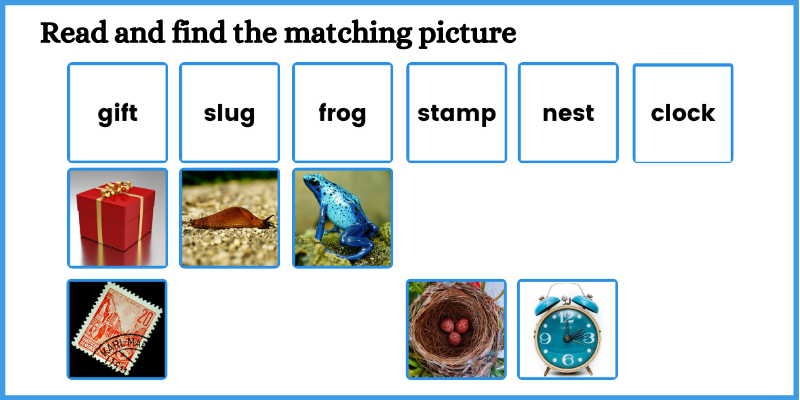
For more Montessori Reading Resources like this, visit Montessori Pulse
When the child has mastered composing, it’s time to introduce reading. Reading consonant blends is the same as reading CVC words or any long phonetic words. You just have to bring the child’s attention to all the sounds in the word. The most important difference between composing and reading is when you use picture cards. When reading, you bring the word cards first.
- Show the child a consonant blend/long phonetic word card and ask him to read.
- Then ask the child to choose the right picture card out of about 6 picture cards.
Lists, Booklets, Sentences & Story Books are also shelf activities for reading. I will add them to the Montessori Pulse Resource Library soon.
Digital Version of this Activity with Boom Cards™ – Distance Learning

Hands-on practice with real materials is the best option when it comes to children’s education. But somehow, now as educators and parents, we are forced to use technology. The best thing about Boom Cards™ is that they are interactive. Boom Cards are self-correcting, no-prep, paperless and interactive activities. Children love these game-like activities. You can register in Boom Learning for Free!. Once you have an account, you can search for any kind of activity and download it. Once you download a deck, your child can play that over and over again forever. There are lots of free decks and paid ones as well. Click on the picture above to play a preview for free.
Digraphs & Diphthongs
Composing Digraphs & Diphthongs
Materials: Large Movable Alphabet in two colours & Language Mat
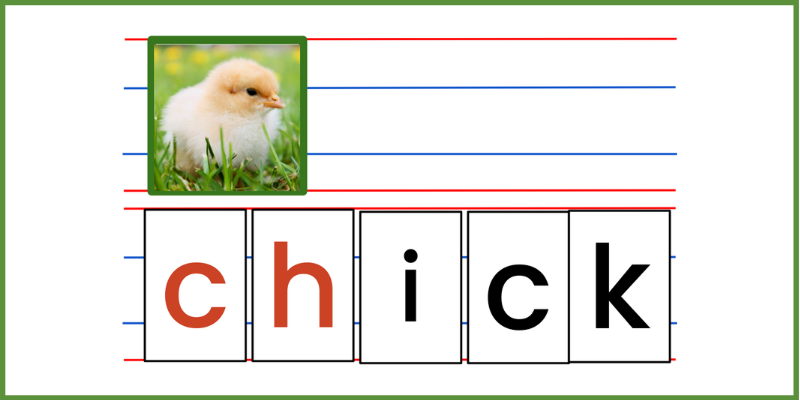
For more Montessori Reading Resources like this, visit Montessori Pulse
- Use the red set of movable letters to build the chosen digraph. E.g., if you chose ch digraph, take a ‘c’ and ‘h’ from the red letters, put them together on the table and say ‘ch’.
- Show the child a digraph picture card. Pronounce clearly to bring attention to the special sound.
- Invite the child to pronounce the word a few times as well.
- Show the child how to build the digraph using the red letters and the rest of the word with black letters.
Reading Digraphs & Diphthongs
Materials: Picture Cards & Word Cards, Lists, Booklets, Sentences & Story Books
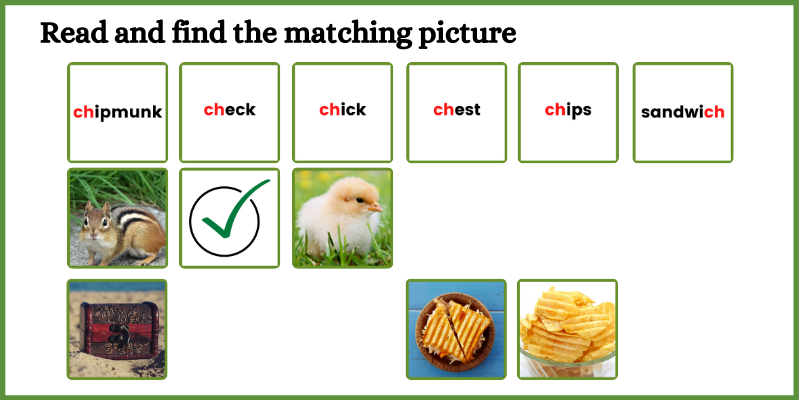
For more Montessori Reading Resources like this visit Montessori Pulse
When the child has mastered composing a certain digraph, it’s time to introduce reading Words that contain the same digraph. At this stage, it is important that the words you choose do not have other difficulties or other digraphs. This is a great way to isolate that certain digraph, so it is easy for the child to practice and perfect it.
Reading digraphs is the same as reading any phonetic word. You just have to bring the child’s attention to the special sound of the digraph. The most important difference between composing and reading is when you use picture cards. When reading you bring the word cards first and then the picture cards.
- Show the child a digraph word card and ask him to read.
- Then ask the child to choose the right picture card out of about 6 picture cards.
Digital Activities -Boom Cards™ or Google Slides™ for Distance Learning
Read The Illustrated Guide to Montessori Digraphs and Non-phonetic Words
For more Montessori Reading Resources like this visit, Montessori Pulse
